A decade after controversial ‘Blue,’ ‘Passages’ shows Adèle Exarchopoulos’ new colors
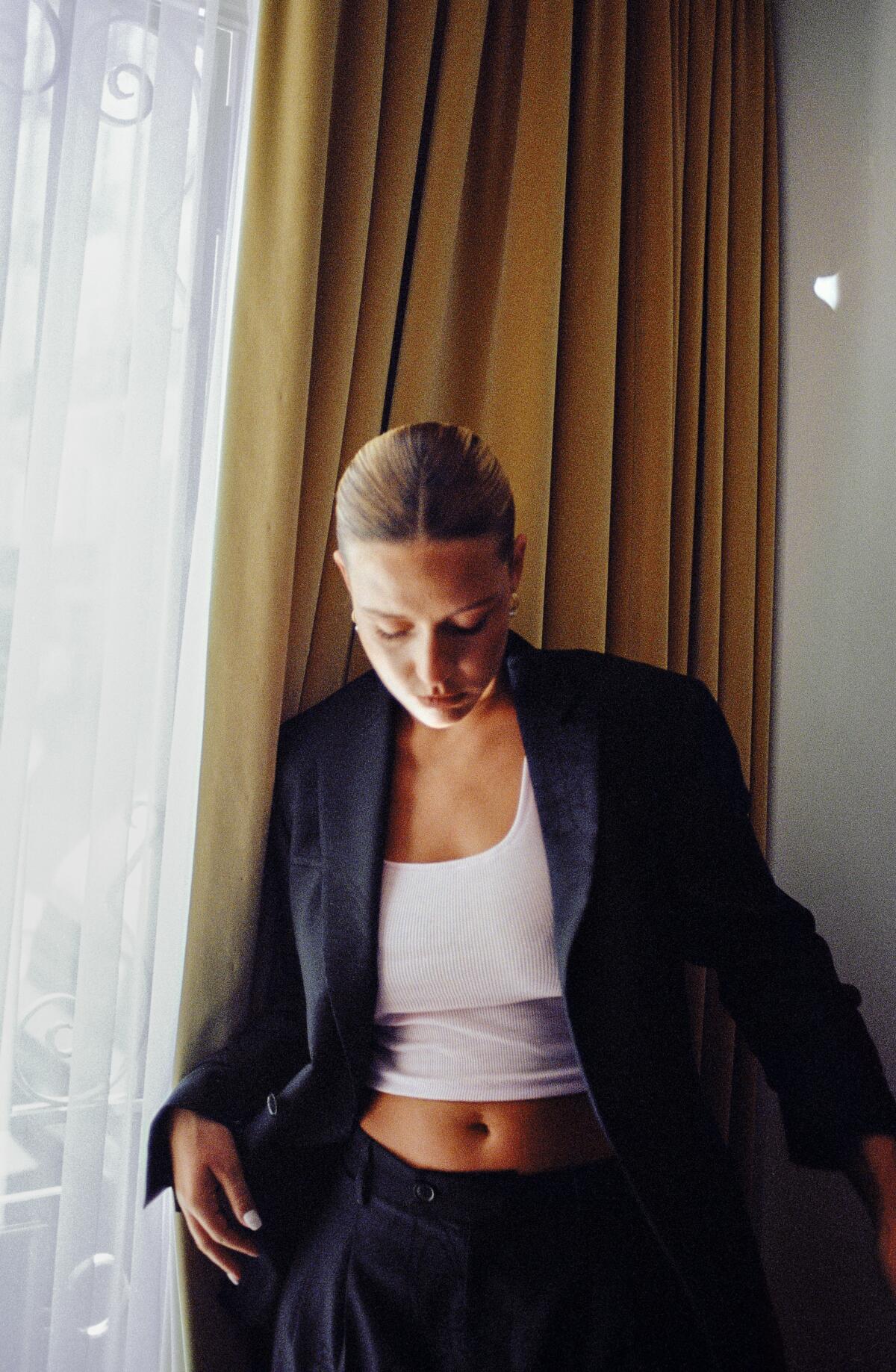
When we first meet the character of Agathe, a schoolteacher living in Paris in the drama “Passages,” she’s in a club, tired of pretending to be interested in the needy guy who’s nominally her boyfriend. Impulsively, she ditches him, swirling around a stranger on the dance floor, their bodies inching closer. Agathe doesn’t care that he’s married. She’ll go to bed with him later that evening, and screw him again the next time their paths cross. The sexual attraction is too hot — the moth will find its flame.
This is merely the opening salvo of the combustible new romantic triangle from director and co-writer Ira Sachs. Adèle Exarchopoulos plays Agathe, who has no idea of the passion and misery she’s brought into her life by embracing Tomas (Franz Rogowski), an acclaimed but temperamental filmmaker.
Exarchopoulos delivers a performance that’s simultaneously controlled and free, conjuring comparisons to the similarly unbridled and delicate turn she gave 10 years ago in “Blue Is the Warmest Color,” the heartbreaking, sexually frank film that made her name, earned endless accolades and attracted plenty of controversy — including a public spat between director Abdellatif Kechiche and co-stars Exarchopoulos and Léa Seydoux, who both claimed he put them through hell during filming. (In 2018, an unnamed actress accused Kechiche of sexual assault, although French authorities decided not to pursue an investigation, saying there was insufficient evidence. Kechiche denied any wrongdoing.)
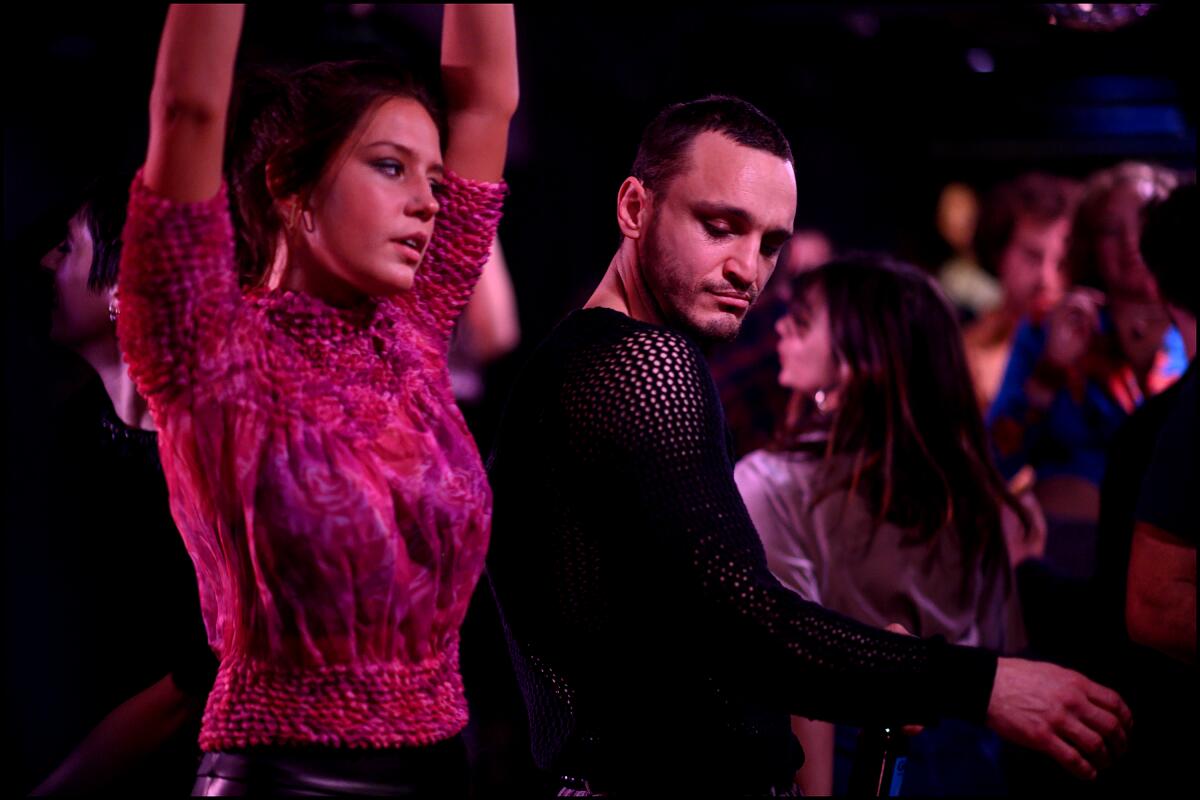
On a Zoom call in mid-July, Exarchopoulos no longer registers as the teenage ingénue who, in 2013, journeyed to the Cannes Film Festival for “Blue,” going home with the Palme d’Or (becoming the youngest person to win that award ever). Turning 30 in late November, the French-born actress occasionally has trouble with her English, but her soft-spoken thoughtfulness is always apparent.
And although American audiences may not have noticed, Exarchopoulos has lately come into her own, delivering a string of superb turns in a series of diverse international films: gripping in the character study “Zero F— Given,” frayed and raw in the spooky drama “The Five Devils,” delightful in Quentin Dupieux’s endearingly oddball comedy “Smoking Causes Coughing” and calmly compelling as a police officer facing off against mutants in this summer’s French hit “The Animal Kingdom.”
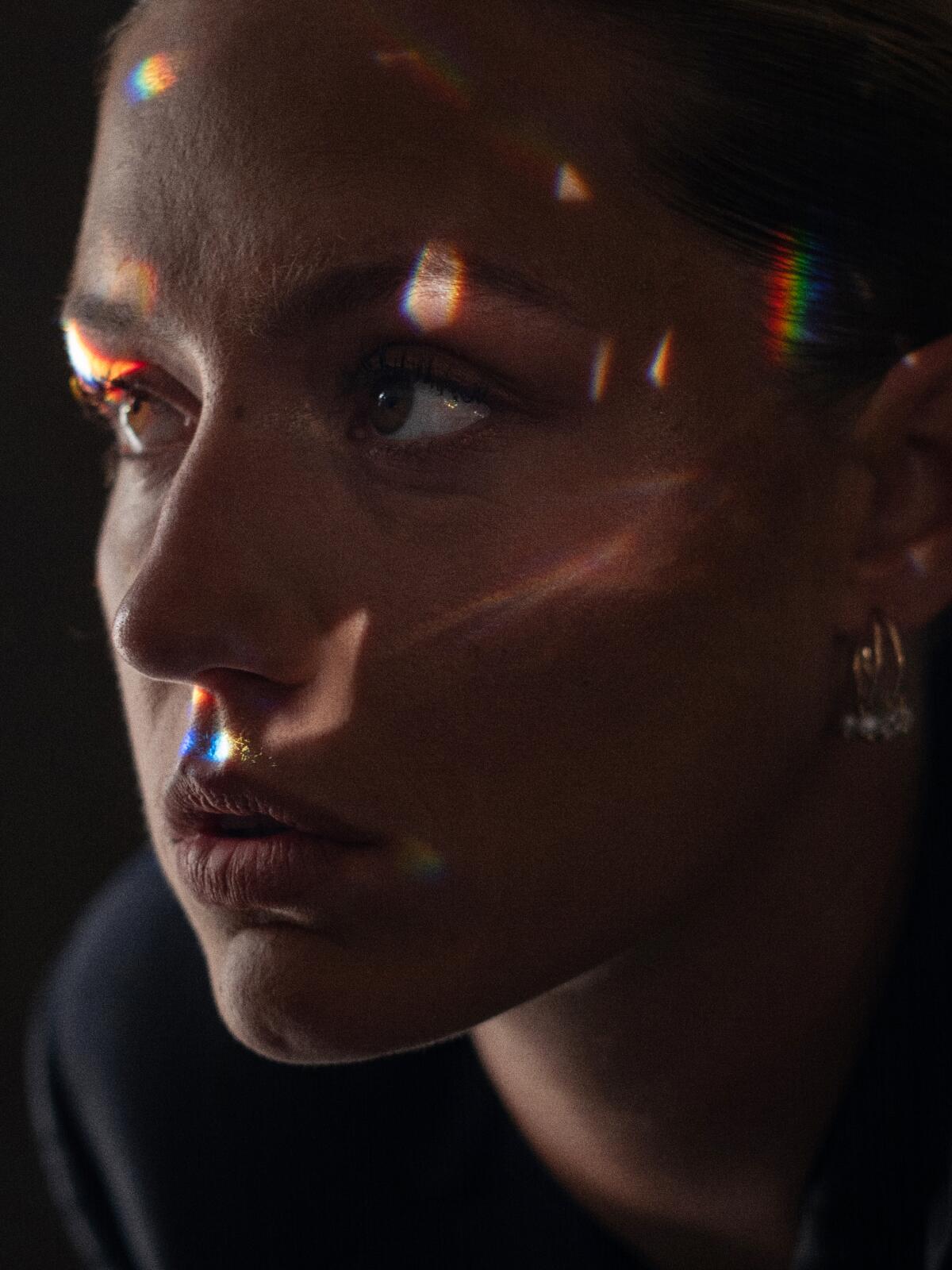
Each one is its own beguiling proposition, but “Passages” feels like a fitting summation of how far she’s come since “Blue” while staying true to the searching spirit of her breakout moment. “This past two years, I’ve had a chance [to be] in really good movies,” Exarchopoulos says. “Good stories, good directors, good characters. When you have this luxury, it’s wow.”
She insists there was no master plan behind the dizzying range of these recent films. “I think it’s really the chance to explore completely different playgrounds and also put [myself] into situations where I have different work to do before the shoot,” she explains. “It’s the pleasure of playing.”
Exarchopoulos talked to The Times about the challenges of her “Passages” character, the importance of using intimacy coordinators and why she’s stayed in touch with “Blue” director Kechiche. This interview has been edited for length and clarity.
You have the trickiest role in “Passages.” Agathe gets swept up in Tomas’ charm, only to realize that she’s in a relationship with a manipulative narcissist. It’s easy for your character to come across as weak or foolish. How did you navigate that?
My challenge was that I didn’t want her to be a victim and for people to see her like, oh, she chose to suffer. I wanted to make someone with dignity and empathy. Even if she doesn’t understand all the reasons why she’s falling for this guy, you can relate to her. The first time I read the script, that was one of my concerns.
Was there any particular moment where it was especially hard for you to achieve that?
The scene where I hear [Tomas] in the house [having sex in the next room], I was like, “No, Ira, how she can stand that? Why is she leaving in the morning and not now?” And he told me, “Adèle, sometimes we know that the best thing would be to do this — but [we’re incapable] of doing it. We’re waiting for someone to save us, but it’s never coming.”
We show the character at the end being brave and having dignity, but it’s also cool to play someone who doesn’t have dignity. When you have the vulnerability to fall in love, it’s hard to keep it sometimes.
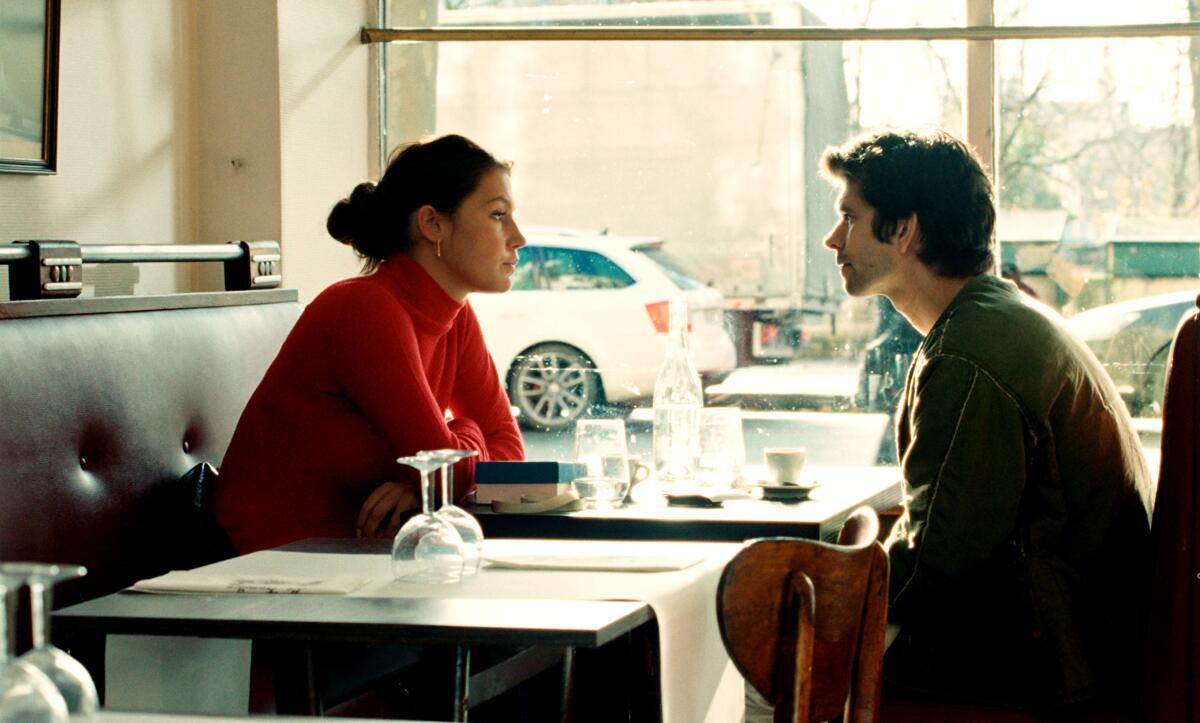
Sachs hadn’t seen “Blue Is the Warmest Color” before casting you. Did that surprise you?
It was funny that he didn’t see it. When he told me, of course I never dared to say, “You should watch ‘Blue’!” I think Ira wanted something really natural, and he chose well: Ben [Whishaw, her “Passages” co-star] has this natural mystery, Franz has this kind of femininity and masculinity and I was the Parisian girl, but in a natural way — not just something chic. He’s able to really observe, and he’s someone with no judgment.
Was it liberating for you that he hadn’t seen “Blue”? It’s not like you’re resting on that film’s laurels.
With time, I realize [“Blue’s” legacy] is more a pressure for directors than it is for me. It’s a part of my life — it brings me to this world of cinema — but I can feel in some directors’ eyes, they have this weird feeling that I don’t really understand. They’re saying to themselves, I’m going to do better than “Blue.” It’s a challenge for them.
It’s interesting they feel competitive with a film you made so long ago. Have you sensed that some directors just saw you as your “Blue” character?
If I felt they were thinking this, I haven’t worked with them. I love people who don’t get seduced by actors, but are seduced by roles.
After “Blue’s” acclaim at Cannes, I have to imagine you were courted by Hollywood, but you didn’t start popping up in American films. What happened?
I remember my American agent brought me to L.A. — all these meetings. It was funny because all the producers had seen [“Blue”] and they were like, “We will work together one day!” After the first meeting, I called my dad: “I’m going to work with Paramount!” And one hour after, I [had] a meeting with Sony and they told me the same, so I understood. I called back my father: “They’re just saying this. It’s just a way of working in America.” So I was like, “OK, don’t think about it, Adèle — it’s not the time.”
One of the sharpest criticisms against “Blue” came from the LGBTQ+ community, arguing that you and Léa Seydoux, two straight women, didn’t have the right to tell that story. How did that charge feel?
I was young — I was 18 when I went to Cannes. [Lesbians] were saying, “We don’t have sex like this.” But this is a movie about first desire — a first love story. I think, in my small experience, there [is] one language that is unique — how you have sex with someone. So, for me, it was really stupid. I didn’t really see the [argument].
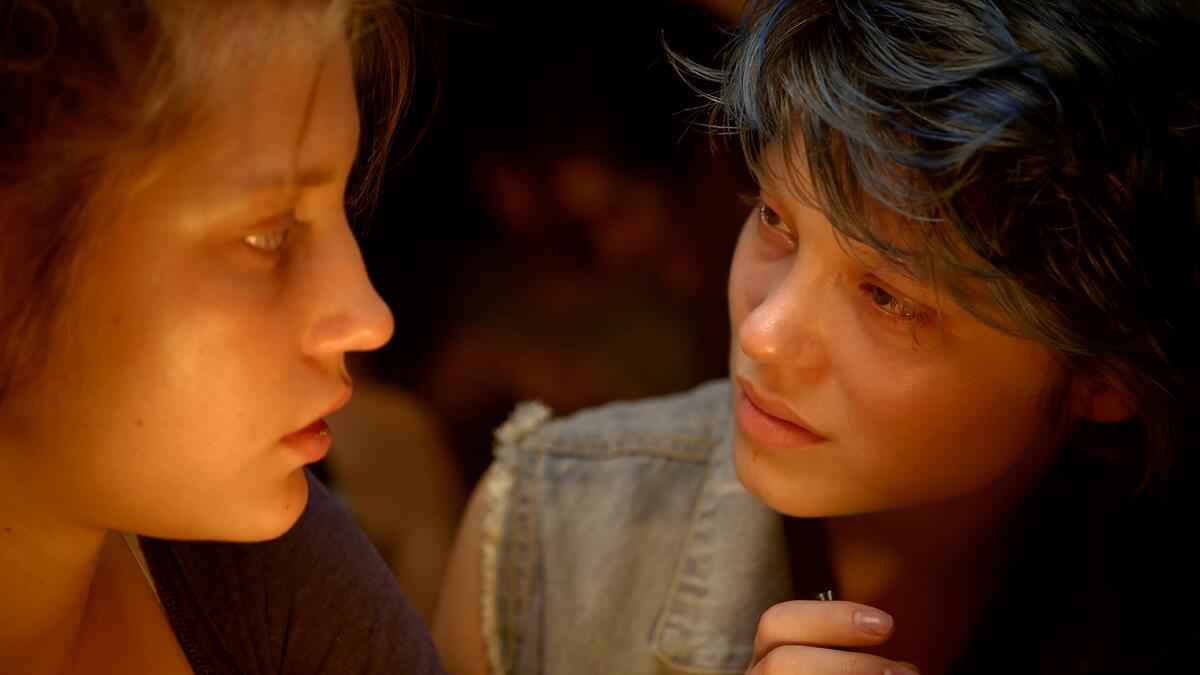
Nowadays, there are intimacy coordinators for sex scenes. I wondered if that might have made shooting those sequences in “Blue” a little less fraught if the film had been made today.
I don’t think it was the sex that was hard. It was not discovering that I would be naked. The process of “Blue” was hard because it was like a documentary. It was exhausting: the time, the takes, the fact that we didn’t even know how the story will end, by the fact that a lot of different [people] were getting fired or [left] the movie. That was hard.
But, of course, I think sexual intimacy coordinators are important because it’s hard to [discuss] in front of 10 people, “Are you agreeing to [take off] your bra?” I think you are even more free when there are boundaries and limits — otherwise, even for the male, he doesn’t know what he should do, should not do. Everyone gets scared. You can find more creativity when you know the territory than when you explore with clumsiness and with no coordinator. It’s a good thing, to be honest — I don’t think it will block inspiration.
Actors often have to fight against being typecast. Did “Blue’s” success mean you got offered nothing but roles where you’d have to do intimate sex scenes and play characters like that?
The first year after, yeah. I said no to everything. But what is funny is no one [will] put Léa and I in another movie without playing lovers. She could play my sister or she could play my friend. One day I spoke to her: “I want to work with you again.” And she was like, “Yeah, but I think no one will dare to do it.”
It was like when I made my first comedy. People were like, “Oh, you waited all this time, you didn’t want [to do] comedy before?” It tells a lot about the industry. Sometimes they put us in a box.
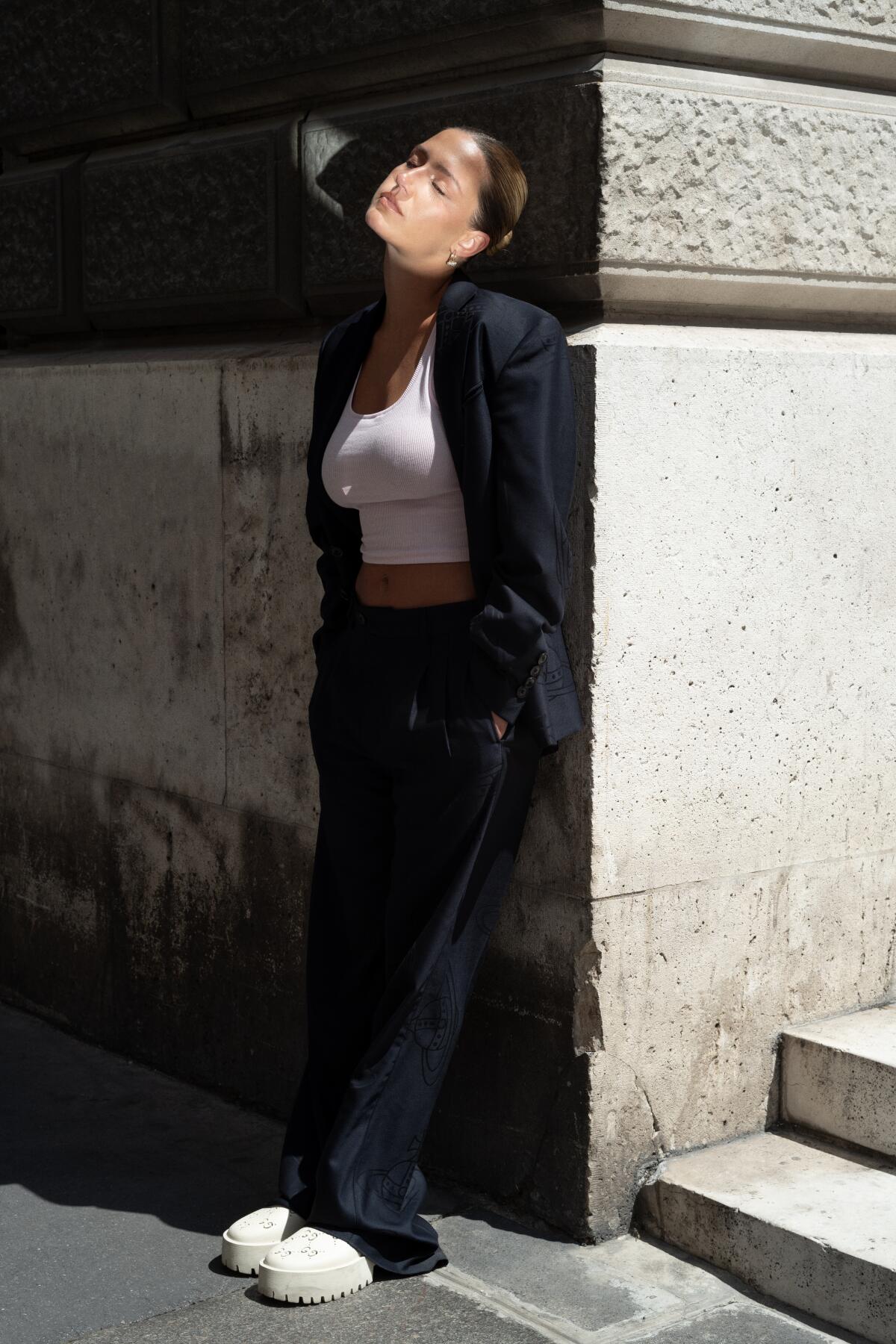
You had to prove you were more than that character — that you had other tones and roles you could play.
To be honest, I didn’t know what I could do after. I was like, now that I’m without Kechiche, will I succeed on a normal shoot? My first shoot after, I was lost — I remember texting him, “Whoa, I’m dead. Without you, it’s hard.”
Do you and Kechiche still talk?
Yeah, I saw him, I don’t know, six [months] or one year ago. We went to the same cafe that we were at a long time ago, and we spoke a lot about stuff that we never dared to before.
Like what?
I don’t know, feelings or regrets. It’s hard to explain such an intimate link with someone, but I will always have a lot of tenderness for people that were part of “Blue Is the Warmest Color.” I have no regrets about the movie.
I will always have a lot of tenderness for people that were part of “Blue Is the Warmest Color.” I have no regrets about the movie.
— Adèle Exarchopoulos
People may be surprised to read that. After all the harsh words exchanged after Cannes, I could imagine you and Kechiche never speaking again.
Of course, there was all this context of the movie and all the troubles after. But when you live something really deep and powerful with someone — even if you don’t see them each month or each year — you will always have this feeling of familiarity. He will never be a stranger for me.
In “Blue” and “Passages,” you play women who are open, who are willing to be vulnerable, but there’s also a toughness to them. Would you describe yourself the same way?
I’m really bad about analyzing myself. But with people that I love, I can be tough for them — I can fight for them. But for myself, I feel more vulnerable.
Has that gotten easier over time? Have you learned to fight for yourself?
When I became a mother, I was like, how can I be scared of anything? [Motherhood] gives you the sense of life and priority.
More to Read
Only good movies
Get the Indie Focus newsletter, Mark Olsen's weekly guide to the world of cinema.
You may occasionally receive promotional content from the Los Angeles Times.










